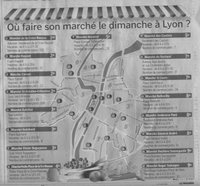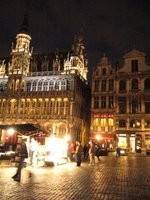I am still not accustomed to the French greeting of kissing on both cheeks, aka la bise. As a Canadian, I greet with a nice arm’s length (some might say, sanitary) hand gesture that resembles waving, or with some sort of verbal greeting, and perhaps, the most intimate greeting for strangers: the handshake. For the most part (yes, I understand there are always exceptions), hugs and kisses are reserved for family, close friends, and lovers.
Before I came to France, I always thought that la bise was something that you did with many people but that there still required some sort of intimacy or familiarity. However, la bise is a neutral greeting and perhaps the French equivalent of “hey, what’s up” or hand-waving and as Leonore and Melanie both pointed out to me, is really no indication of intimacy or even interest for both parties. Leonore made a joke about how you might give somebody la bise one night and you could very well end up in a situation where if you saw them on the street a few weeks later, you would pretend not to see them and deliberately avoid them. Sometimes you will see guys doing it to guys (I don’t know if there is as much rampant homophobia in French society), and if you find yourself at a party, you are expected to do la bise with each person at the party and who comes to the party.
Apparently, depending on where you find yourself, la bise differs from country to country and region to region. I’ve been told that in Belgium, you kiss most people once on the cheek and three times for your friends. And in some places in Switzerland, three kisses are customary.
My German friend, Ricky, has been able to relate to my problems with la bise and has said that in Germany, greetings are done in pretty much the same way as in Canada. Our shared conundrum was whether or not there was a methodical approach to la bise i.e. with which cheek do you start? We likened it to shaking hands always with the right. This was last Saturday so we still need to figure this one out, maybe by observing French people or asking a French person.
In any case, the two levels of greeting that exist here, i.e. la bise and the option of a verbal greeting, has created a degree of uncertainty for me so that I’m not sure whether or not to take it as a sign if somebody doesn’t do la bise with me when I leave. Also, would they take it as an insult if I don't perform this ritual without offering a cultural justification?
Read more...

